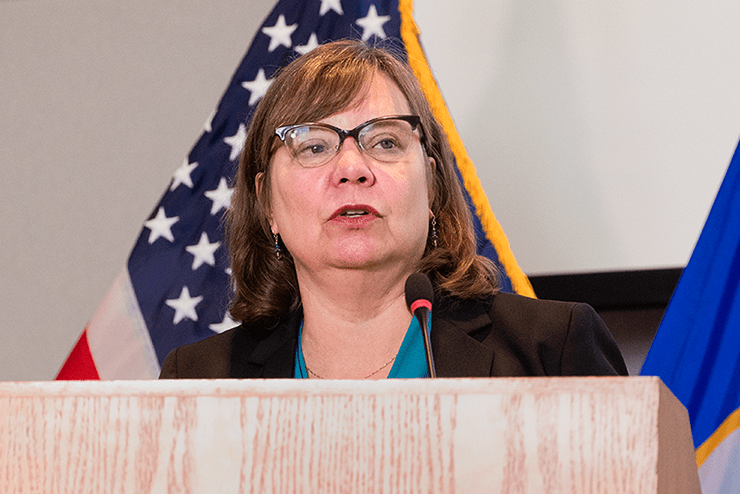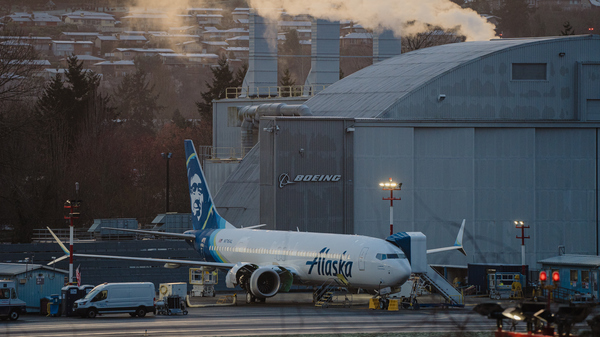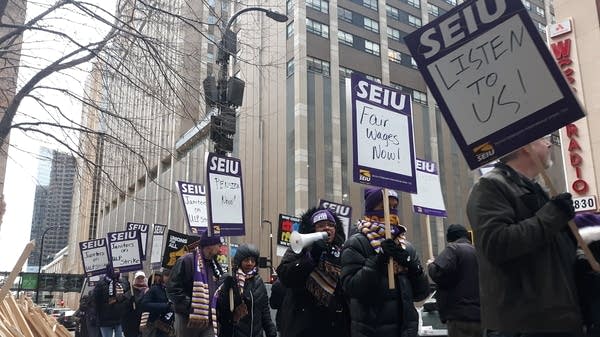
In Minnesota’s latest economic forecast, 5 pieces of good news explained
March 4, 2024
FAA audit faults Boeing for 'multiple instances' of quality control shortcomings
March 4, 2024About 4,000 commercial janitors from around the Twin Cities started a three-day strike on Monday — with additional walkouts by other unions planned, or possible, over the next week.
Several dozen of the janitors who started a three-day strike Monday joined an early-morning picket line outside of Ameriprise Financial Center in downtown Minneapolis.
The workers, members of Service Employees International Union Local 26, clean more than 100 buildings across the Twin Cities. They’ve been in negotiations for months, looking for better pay and retirement benefits.
“We hope that this sends a message that we’re serious, but we still want to get this done. We’d much rather be with our families right now, or working, than out here,” Greg Nammacher, president of SEIU Local 26, said on the picket line.
George Mullins is a union steward; he works as a janitor cleaning Target headquarters in Minneapolis.
“Pension is a big deal for us, because I’ve been with the company for over 25 years, and I’m soon to retire, and what do I have? Nothing. With the inflation and everything, we’re just trying to keep up,” he said.
Last week, thousands of other janitors and security guards who are members are SEIU Local 26 reached agreements to avert a larger strike on Monday. The union said another negotiating session, for the workers who haven’t yet reached an agreement, is planned for Friday.
Attorney John Nesse, who is negotiating a contract on behalf of 10 employers who are part of the Minneapolis-St. Paul Contract Cleaners Association, issued a statement saying those employers “respect their employees’ right to strike” and are looking forward to resuming talks on Friday.
More strikes planned, possible
The three-day janitors’ strike is scheduled to continue Tuesday — the same day that nearly 1,000 union workers from a dozen nursing homes in the Twin Cities stage a one-day unfair labor practices strike.
The nursing home workers include nurses, nursing assistants, cooks, activity aides and maintenance workers, among other staff. They’re pushing for a $25 minimum wage, better staffing, and improved health care and retirement benefits.
Jamie Gulley, president of SEIU Healthcare Minnesota & Iowa, spoke with MPR’s Minnesota Now in February after the strike was announced.
Gulley said nearly half of nursing home workers report making less than $20 an hour, and 80 percent report making less than $25 an hour.
“These just aren’t wages that are going to bring people into the industry to take care of our seniors,” Gulley said. “We need fundamental change, so that we can recruit people and get the staff that the residents deserve.”
The head of a New Hope nursing home, responding to the pending strike, told MPR News last month that it’s already undertaken efforts to increase worker pay and benefits, but legislative funding reform is needed.
Craig Abbott, CEO of Saint Therese, said it’s invested $7.5 million annually since 2022 to improve employee wages and benefits. But Abbott said the one-time funding state lawmakers approved for nursing homes last session isn’t enough to cover the ongoing costs.
“You can do quick math on the number of dollars that we and others have lost. It’s just not sustainable to pull on limited reserves and declining reserves to continue to, frankly, pay for what should be paid by the state of Minnesota,” Abbott said. He said there will be no disruption of care for Saint Therese residents.
Further labor actions are possible next week, as teachers in St. Paul Public Schools have set a strike date of March 11.
Hours of mediation over the weekend failed to produce an agreement between the district and the St. Paul Federation of Educators, with further talks planned this week.
MPR News correspondent Kirsti Marohn contributed to this report.





